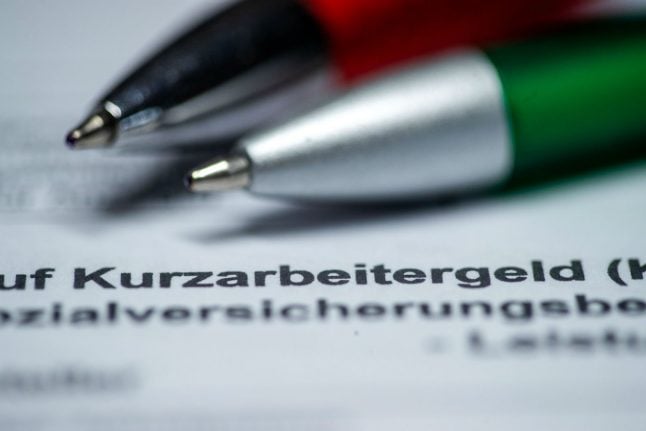Known as “Kurzarbeit”, the measure tops up from government coffers the pay of workers placed on shorter hours by their employer, preserving the contractual relationship for the time when activity rebounds.
Some 470,000 firms have already applied for the aid, labour minister Hubertus Heil said Tuesday, adding that the number of people affected would likely top the peak of 1.4 million seen in the 2009 financial crisis.
Here is how the scheme works and how it has inspired other countries to follow the German example.
How it works
Berlin covers around two-thirds of the salaries of workers whose employers slash their hours after an agreement with the company's works council.
Ministers reduced the threshold for the proportion of workers who must be affected for a company to qualify to 10 percent, from one-third previously.
READ ALSO: Germany gives green light to 1.1 trillion coronavirus aid package
Companies must apply for the aid to the local branch of the BA federal labour agency.
BA payments also cover workers' social contributions, with the whole package lasting up to one year.
When German economic output contracted five percent in 2009, an average of 1.1 million workers were affected over the year, costing Berlin around €10 billion.
By the end of that year, the unemployment rate stood at 7.6 percent — lower than in 2008.
The BA has around €26 billion of reserves, chief Detlef Scheele said Tuesday, while the federal government will also step in with extra funds if needed to cover payouts.
Companies slashing hours
So far the BA is unable to give a figure for exactly how many workers are covered by shorter hours schemes in the coronavirus crisis.
But many household-name companies have announced tens of thousands of employees will be affected.
Car giant Volkswagen has applied to cover 80,000, while BMW reported 20,000 and components maker Continental 30,000.

Construction at Continental's new Hanover site at the beginning of March. Photo: DPA
Mercedes-Benz parent Daimler said “a majority of production and selected administrative areas” would be affected, but did not give precise figures.
Industrial conglomerate Siemens is in talks with worker representatives.
In the chemical sector, mammoth BASF has so far only applied to cover certain sites, but said it would be prepared to launch a broader scheme if needed.
And in services, all of tour operator TUI's 11,000 workers will be on shorter hours from April 1st until September, while airline Lufthansa has requested cover for 31,000 employees until September.
Other countries follow suit
Eyeing the German experience of a swifter rebound following the 2009 crunch, major European economies France and Britain have both introduced programmes similar to Kurzarbeit as the battle against coronavirus intensifies.
Paris will cover up to 84 percent of net pay for workers earning up to 4.5 times the minimum wage.
Labour Minister Muriel Penicaud said Wednesday that 337,000 companies had requested the aid to cover 3.6 million employees.
READ ALSO: Coronavirus in Germany: Who will receive financial help – and how much?
Meanwhile London this month said it would “within weeks” cover 80 percent of salaries, paying up to £2,500 ($3,091) per month for people out of work because of the virus.
The scheme will be backdated to March 1 and last initially for three months.
In the US with its less dense social safety net, a $2 trillion rescue package passed by Washington last week provides for one-off payments of $1,200 to Americans earning up to $75,000 annually, plus $500 per child.



 Please whitelist us to continue reading.
Please whitelist us to continue reading.
Member comments